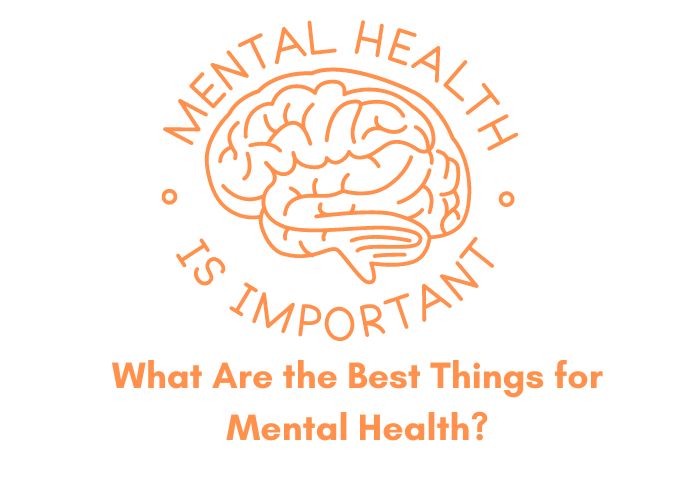Maintaining good mental health is essential for overall well-being. In today’s fast-paced world, various factors can impact our mental health, but incorporating certain practices into our daily lives can significantly improve it.
Physical Activity
Regular exercise has numerous benefits for mental health. It helps reduce symptoms of anxiety and depression, improves mood, and enhances overall cognitive function. Engaging in activities like walking, jogging, yoga, or dancing can uplift mood and promote mental well-being.
Healthy Diet
Nutrition plays a crucial role in mental health. Consuming a balanced diet rich in fruits, vegetables, whole grains, and lean proteins provides essential nutrients that support brain function and regulate mood. Foods high in omega-3 fatty acids, such as salmon and walnuts, are particularly beneficial for mental health.
Adequate Sleep
Quality sleep is vital for mental health. Lack of sleep can negatively impact mood, cognition, and emotional stability. Establishing a bedtime routine, creating a comfortable sleep environment, and avoiding stimulants before bedtime can help improve sleep quality.
Mindfulness and Meditation
Practicing mindfulness and meditation can reduce stress, enhance self-awareness, and promote emotional balance. Mindfulness involves focusing on the present moment without judgment, while meditation aims to achieve a state of deep relaxation and inner peace. Integrating these practices into daily life can foster mental clarity and resilience.
Social Connections
Maintaining strong social connections is crucial for mental health. Spending time with friends and family, engaging in meaningful conversations, and participating in social activities provide emotional support and a sense of belonging. Building and nurturing relationships contribute to overall happiness and well-being.
Engaging Hobbies
Pursuing hobbies and interests can improve mental health by providing a sense of purpose and fulfillment. Whether it’s painting, gardening, playing a musical instrument, or participating in sports, engaging in activities that bring joy and satisfaction can reduce stress and boost mood.
Professional Support
Seeking professional help when needed is essential for mental health. Therapists, counselors, and psychiatrists can provide guidance, support, and effective treatments for various mental health concerns. Therapy sessions, medication management, and other interventions can significantly improve overall well-being.
Stress Management
Effective stress management is key to maintaining good mental health. Engaging in relaxation techniques such as deep breathing, progressive muscle relaxation, or guided imagery can alleviate stress and promote relaxation. Setting realistic goals, prioritizing tasks, and practicing time management can also reduce stress levels.
Positive Thinking
Cultivating a positive mindset can enhance mental health and well-being. Positive thinking involves focusing on strengths, successes, and opportunities rather than dwelling on negatives. Techniques such as affirmations, gratitude journaling, and visualization can foster optimism and resilience.
Setting Boundaries
Establishing healthy boundaries is essential for protecting mental health and preserving personal well-being. Setting limits on time, energy, and resources can prevent burnout and maintain healthy relationships. Learning to say no when necessary and prioritizing self-care contribute to overall mental wellness.
Gratitude Practice
Practicing gratitude can promote mental health and emotional well-being. Acknowledging and appreciating the positive aspects of life fosters a sense of contentment and happiness. Keeping a gratitude journal, expressing gratitude to others, and reflecting on blessings can cultivate a mindset of abundance and positivity.
Limiting Screen Time
Excessive screen time, especially on electronic devices, can negatively impact mental health. Limiting screen time, particularly before bedtime, can improve sleep quality and reduce the risk of digital eye strain and mental fatigue. Engaging in offline activities such as reading, hobbies, or outdoor pursuits promotes mental relaxation and balance.
Nature and Outdoors
Spending time in nature and outdoors has numerous benefits for mental health. Immersing oneself in natural environments, such as parks, forests, or beaches, reduces stress levels, enhances mood, and promotes relaxation. Activities such as hiking, picnicking, or simply enjoying the beauty of nature can rejuvenate the mind and spirit.
Conclusion
Incorporating various practices into daily life can significantly enhance mental health and well-being. From physical activity and healthy eating to mindfulness and social connections, prioritizing mental wellness is essential for living a fulfilling and balanced life.
FAQs:
- What if I struggle to find time for self-care amidst a busy schedule?
- Finding time for self-care can be challenging, but even small actions can make a difference. Start by incorporating brief mindfulness exercises or short walks into your daily routine. Remember, self-care is essential for overall well-being.
- How can I encourage a friend or loved one to prioritize their mental health?
- Express your concern in a compassionate and non-judgmental manner. Offer support and encouragement, and provide resources or accompany them to appointments if needed. Let them know that seeking help is a sign of strength, not weakness.
- Are there any specific exercises or activities that can help reduce stress quickly?
- Deep breathing exercises, progressive muscle relaxation, and guided imagery are effective techniques for reducing stress in the moment. Engaging in physical activities like yoga or going for a brisk walk can also alleviate stress and promote relaxation.
- What role does social media play in mental health, and how can I manage its impact?
- While social media can connect us with others, excessive use can contribute to feelings of inadequacy, anxiety, and loneliness. To manage its impact, set limits on screen time, curate your online environment, and prioritize in-person interactions.
- Is it normal to experience ups and downs in mental health, even when practicing self-care?
- Yes, fluctuations in mental health are normal and can be influenced by various factors such as stress, life events, and hormonal changes. Consistently practicing self-care and seeking support when needed can help navigate these fluctuations and maintain overall well-being.
